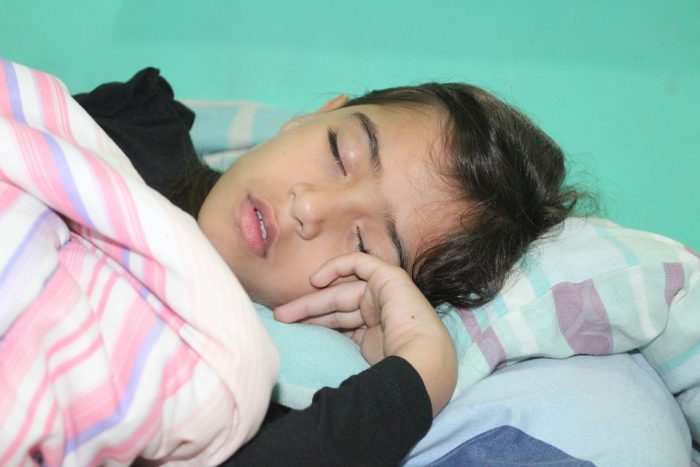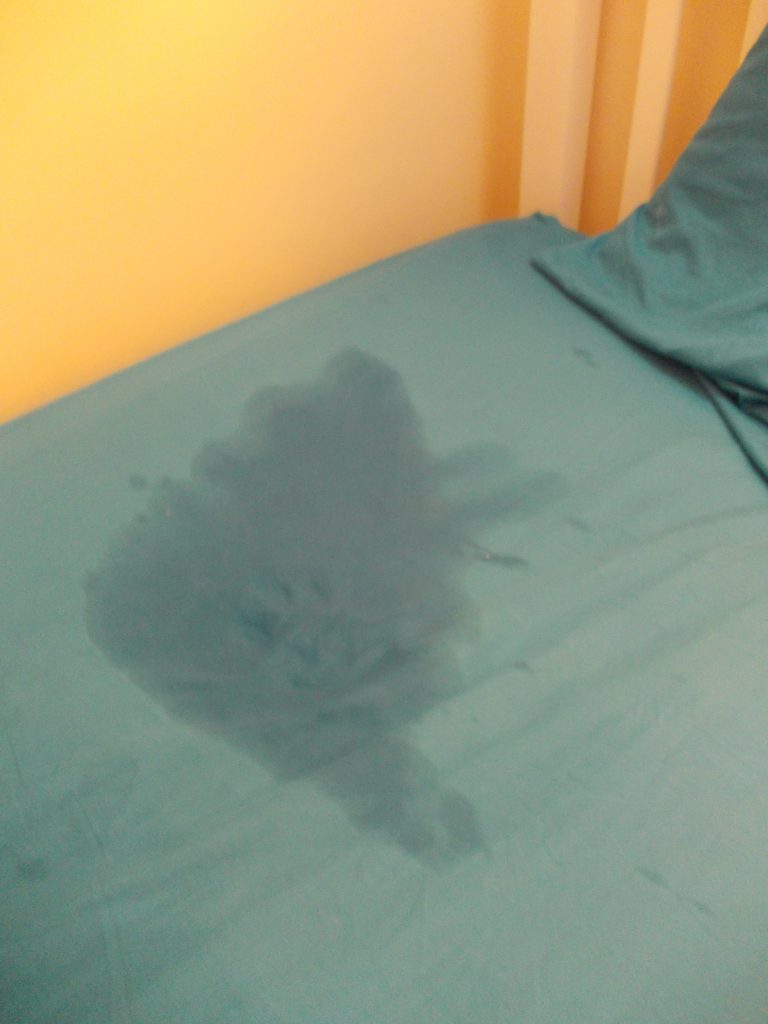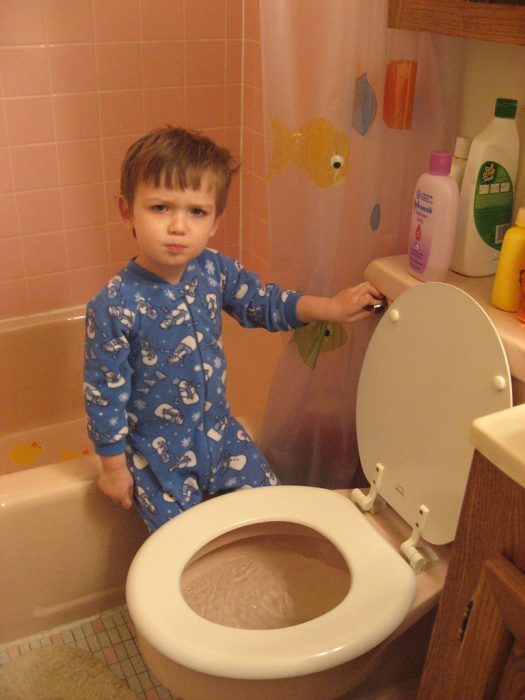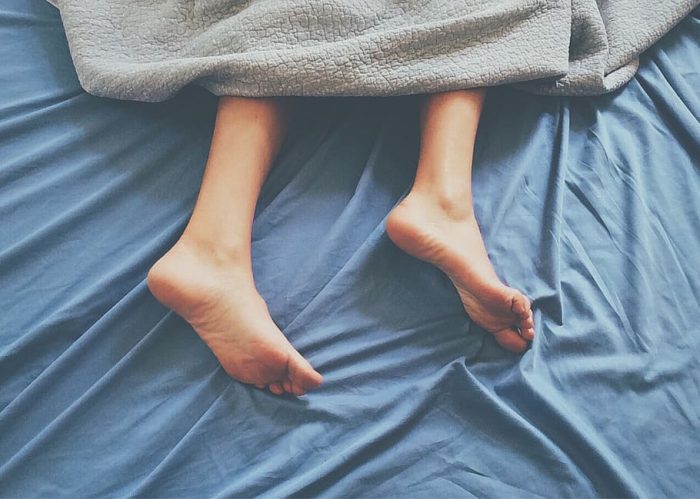When your child is young, it’s common for them to wet the bed at night, especially during the potty training phase. Even after that, it can still happen on occasion.

But what if your kid is 9, or in the older child age range? At that age, your child should be old enough not to wet the bed, and yet they’re doing it. What gives? Why is it that my 9 Year Old still wets bed? It’s more common than you think. Usually, it’s a sign of something called enuresis.
Enuresis
This is the term for bedwetting when the individual is of an age where they should be able to stay dry through the night, and it focuses on children who are older than 7 years of age. This is quite common in children, especially among boys. The only symptom of enuresis is that they are wetting the bed while they are sleeping. It can be occasional or happen frequently, even every night.
The Cause
Bedwetting can have a few reasons. Here are some of them.
- Your Kid Is A Deep Sleeper
Usually, when one has to use the bathroom, they will wake up to the sensation and go use the toilet, then go back to sleep. However, some children are deep sleepers, and will instead urinate while sleeping, and even that may not wake them up. This is what you’ll see with nocturnal enuresis. It’s just more commonly referred to as bed wetting.
- It Runs In The Family
Did you or your partner have bedwetting issues as a kid? Your child could have inherited it. Bed wetting or nocturnal enuresis can and does certainly run in families. You should check your family history if you have children who wet the bed.
- Stress
That’s right. If your child is stressed, they may wet the bed. If you noticed bedwetting after a stressful event, that might be the culprit. Bed wetting tends to get worse in times of sickness and stress.

- Small Bladder
Some children have small bladders or bladders that are still growing. This can make it harder for them to keep the urine in there without having to use the bathroom. Children who wet the bed because of a small bladder will often have to urinate a lot during the day, too. It will seem as if they have a lot of urine production.
- Other Reasons
Usually, the reason is minor, but there can be more concerning reasons as well, such as:
Slow nervous system development.
Hormone problems.
UTI—Urinary tract infection.
Urethral valve abnormalities.
If you’re unsure of the reason, it is worth it to go to the doctor and diagnose. This especially applies if your child is older and keeps wetting the bed. After visiting the doctor, they will examine your child, test their urine, and look into other factors that could cause it. However, the doctor may not be able to figure out what causes it. In most cases, it’s just genetics, and you can’t prevent it.
In many cases, doctors can’t find the cause of bedwetting. You can try to find a doctor who specializes in enuresis in children and has had a lot of success with preventing bedwetting in children. You can help the doctor find the cause of the bed wetting by giving them all the information you can. Even if you don’t think it will help, you should seek medical advice from medical professionals for nocturnal enuresis in children.
Treating Bedwetting
Bedwetting is something your child usually outgrows, even if they are older. Typically, children outgrow bed wetting by the age of 6, and many times even earlier. However, some do not. Here is what you can do if you want to treat your child’s bedwetting.

Don’t Shame Your Kid
Some parents wonder why their nine-year-old still wets the bed. But the last thing you should do is get angry or make fun of your child for bedwetting. They can’t control it. They’re not doing it to make you angry or as a power play. Assure your child that this is a normal thing, and it’s nothing to be ashamed of. If you had a bedwetting past, tell them about it. Parents should be encouraged to tell their stories as well. Discourage sibling mockery, too, and make sure they aren’t telling their peers about the bedwetting. Kids can be cruel.
Instead, use positive reinforcement. When your child has not wet the bed for a day, reward them for their good work. But never put a kid down for something they can’t control. As was mentioned above, you may need to find a doctor who can help your child with their bed wetting. Sometimes they may just give you some healthy living advice like don’t give your child anything to drink close to bedtime. Other times they may run information you give them through a symptom checker to see if there is some other cause for the nocturnal enuresis that can be identified.
Whatever the reason is, you should teach your child responsibility. Have them help with the laundry or putting on the fresh bedsheets. This can help teach your child to clean up their messes. With that said, please don’t punish them for this and even if your nine-year-old still wets the bed. They will feel worse. It won’t help the problem.
Don’t Drink Too Close To Bed
Some people can drink a gallon of water and sleep all night, but that’s not everyone. Try limiting fluids before bed and hydrating your child beforehand.
Let Your Kid Use The Bathroom Before And After Sleeping
This can help establish a routine and make it easier for your child to go to bed when they need to. The body can get used to a routine like this. Enuresis in children happens because urine produced overnight gets released when the child is sleeping. If you establish a routine for that child’s body, it may help, or even eliminate the problem.
There Is No Shame In Waking Up To Use The Bathroom
Also, encourage your child to wake up in the middle of the night and use the bathroom if needed. This is perfectly normal, and your child may feel like they shouldn’t get out of bed. Make sure they realize that it’s okay. Put some nightlights to make the journey easier and so they don’t wake up anyone else.
Explain to your child that you sometimes have to get up and go to the bathroom. You do this so you have dry nights and can go back to sleep. Tell them it’s all a part of healthy living, so it’s always ok to get up and use the restroom at night. It keeps us all from bed wetting and staves off urinary tract infections that can be brought on by holding it.

Training The Bladder
If your child has a small bladder, it is possible to stretch it. Have your child hold in their urine for a while. Don’t torture them, but when they feel a mild sensation, teach them to ignore it unless it gets severe. This is something that shouldn’t be done without the oversight of medical professionals. You should request an appointment with a health care expert if you decide you want to try this tactic. Let them run things through a symptom checker before you start this process.
Plastic Cover
When an accident does happen, putting a plastic cover over the mattress can make it easier to clean. The bed wetting is enough of an issue on its own. You don’t want to have to get a new mattress, as well. Give it a shot and see what it can do for you.
Moisture Alarm
Some beds you can equip with a moisture alarm, which can detect when a bed is wet. When your child wets the bed, they will be woken up. This can teach your child to wake up naturally when they do have to use the bathroom. These kinds of health tools are all things you can look to medical professionals to help you find.
Usually, behavior therapy and changing your child’s routine can stop bedwetting in its tracks. Often, when you as a doctor to find out why your child is still experiencing bed wetting, they will find it has to do with the mental health of the child. And often, mental health issues can be addressed without medication. But what about the medical side and drugs or supplements that can be taken to help?
Medicine
Luckily, there is a medicine that is prescribed to older children who still wet the bed despite the routine change. They may be used in addition to changing routines. Some medicines can make less urine or allow the bladder to keep more in. With that said, make sure that your child is responding well to the medicine. The side effects are usually minor, but every child responds to medicine differently. You also need to request an appointment to get this type of medication so your child can be assessed with a symptom checker. Medicine like this can usually help with children experiencing nocturnal enuresis where it is known to run in families. Other times, there are clinical trials where medicines are being tested to see how they may help eradicate enuresis in children.

Conclusion
It’s common for an older child to wet the bed. However, they will almost always grow out of it. Don’t shame a child, and make sure they are getting the treatment they need. If you feel there might be more to the problem then just the actual bed wetting, request an appointment with a doctor who can use a symptom checker list to diagnose a problem, if there is one. Nocturnal enuresis in children is quite common, though. Eventually, your child will stop bed wetting and be able to sleep throughout the night without wetting the bed once, and it’s something that you should celebrate.
FAQs On 9 Year Old Still Wets Bed
How can I help my nine-year-old stop wetting the bed?
Having a 9-year-old who still wets his bed may be bothersome to most parents. To help a 9-year-old to stop wetting, doctors suggest shifting times for drinking, which means you can give more fluid at daytime and reduce the intake later in the day. You can also cut the intake of chocolate drinks or cocoa, especially at bedtime. Often, bed wetting occurs because there is a lot of urine being produced overnight. Limiting the fluid intake close to bedtime should help with this.
Is it normal for a ten-year-old to wet the bed?
The bladder control of a child differs from one another. Others may learn to stop bedwetting at the age of 5-7 years old. But for ten years old, it is not normal for them to still wet their beds. You should request an appointment with your child’s doctor so they can run through a symptom checker with your child. They may talk to you about your child’s mental health and stress levels to see if that could be causing the bed wetting. They will also, likely, ask you about your family’s history because nocturnal enuresis tends to run in families.
Why would a nine-year-old still wet the bed?
Normally, a 9-year-old has already developed bladder control so as not to wet the bed at night. But if there are cases that a 9-year-old wets his bed, a probable cause is that they are sleeping very deeply.

At what age is bedwetting a problem?
Typically, bedwetting can be learned as your child is growing up. And as soon as the bladder controls developed, bedwetting can be prevented. But if the child reaches five years old and above and still wets his bed every day, this can really be a struggle to the parents or guardians. At that point, it may be time to request an appointment with a doctor so they can run through a symptom checker and help you out with any health tools that are available for preventing further bed wetting.
Is bedwetting a sign of anxiety?
According to experts, there’s no proven study that links anxiety to bedwetting. Research studies show that bedwetting may be genetic.
Is bedwetting a sign of ADHD?
Yes, children who often wet the bed even at an older age have a higher probability of having ADHD. According to studies, bedwetting occurs three times more for children with ADHD than those who do not have it. Maybe this is because an ADHD child has a hard time focusing on their bodily functions. If it’s found to be the case for your child, there are certainly health tools that can be offered to you by your child’s doctor to help. And, if your child has a severe case of ADHD with bed wetting that leads to sleep apnea or weight loss, there may even be some clinical trials that your doctor can give you information about.
What is bedwetting a sign of?
Bedwetting or sleep enuresis is a sign that your bladder hasn’t been developed yet, or bladder control is not matured enough to control the flow of urine. This is a common occurrence for young children, but this can lessen or be eradicated as children grow up.
What does bedwetting mean psychologically?
There may be psychological factors that cause enuresis to older children. According to studies, trauma or family conflicts cause children to wet the bed even at an older age. A doctor can go through a symptom checker to see if there is something going on psychologically.

What are some home remedies to stop bedwetting?
There is no specific study on how to stop bedwetting. But some suggest making dietary changes like eating walnuts or mustard seeds.
Is bedwetting a sign of autism?
Bedwetting does not necessarily mean that the child is autistic. But it is among the signs to take note of when bedwetting is still an issue at three years old. Typically, doctors will have to run through a symptom checker list and find there are other signs that go along with the bed wetting, like sleep apnea and OCD before determining if autism is a likely diagnosis.
9 Year Old Still Wets Bed Other Resources
https://www.mayoclinic.org/diseases-conditions/bed-wetting/symptoms-causes/syc-20366685
https://health.clevelandclinic.org/how-to-help-your-child-stop-wetting-the-bed-2/
https://familydoctor.org/enuresis-bed-wetting/
Last Updated on June 25, 2022 by Jejomar Contawe
DISCLAIMER (IMPORTANT): This information (including all text, images, audio, or other formats on FamilyHype.com) is not intended to be a substitute for informed professional advice, diagnosis, endorsement or treatment. You should not take any action or avoid taking action without consulting a qualified professional. Always seek the advice of your physician or other qualified health provider with any questions about medical conditions. Do not disregard professional medical advice or delay seeking advice or treatment because of something you have read here a FamilyHype.com.